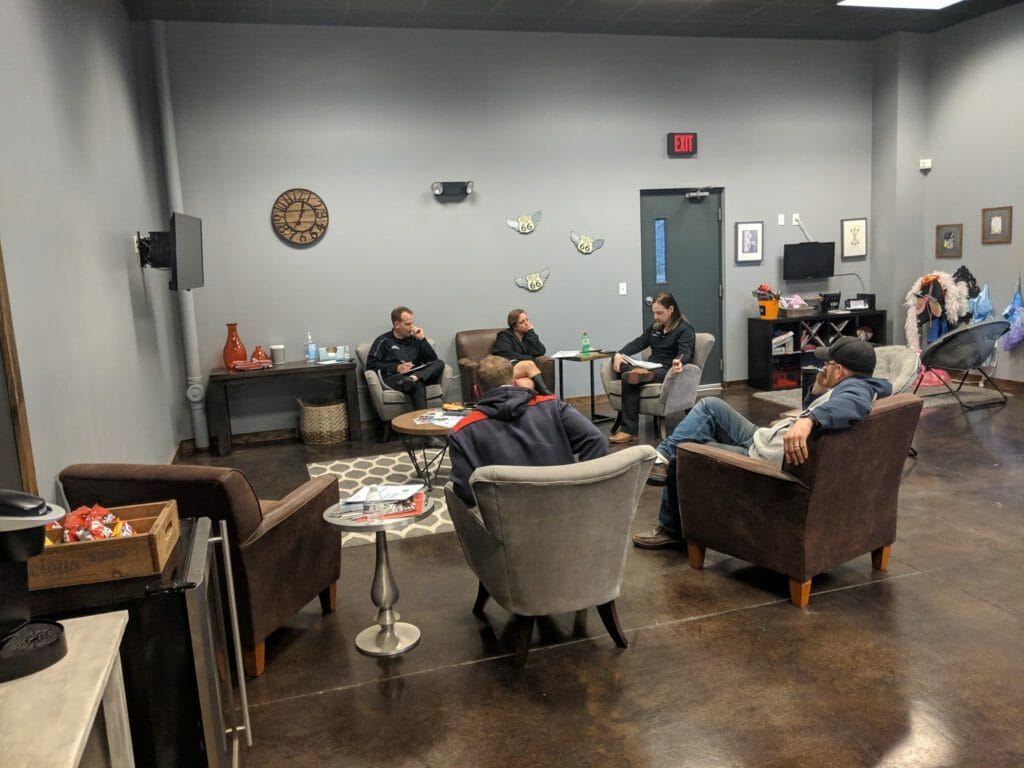How Often Does Your Auto Shop Have Employee Meetings?

The Automotive Management Network currently has a survey asking our members about their employee meetings. We would appreciate it if you could take a few minutes to let us know how you incorporate employee meetings into your shop’s schedule and management.
Take Our Employee Meetings Survey
As you can see, this survey is about the frequency with which your shop holds meetings with your employees. (Scroll down to see the specific survey.) The responses range from never to twice a day. Currently, the most popular response is weekly, followed by daily, monthly, and never, all of which have the same number of responses.
It’s very common to have regularly scheduled meetings, and a weekly check-in being the most popular choice isn’t surprising. We are programmed as a society to view periodic reviews as important for improvement, and we parcel out time in terms of days, weeks, months, and years. Daily is too frequent for many people, but weekly seems more doable.
The Importance of Regular Meetings
There’s nothing magical about a weekly interval of time, however. It’s very likely that every day your auto shop encounters numerous issues that management might need to address. So how often should you have employee meetings?
The answer will vary from shop to shop. Employee meetings should serve a variety of purposes, including building relationships between employees and management, being proactive about seeing problems, and addressing them before they become a disruption to the functioning of your business.
Probably the least helpful number of meetings to hold is a single one, though. The issues that crop up in any kind of customer service business are almost impossible to solve with a one-and-done approach. There are problems that employees have with technology and procedures, problems with other employees, issues with customers, and difficulties with management itself. Every shop will have turnover, no matter how well run it is, so no matter how great the management is, these will have to be continuously addressed, if only to familiarize new employees with how things are done in the shop.
Proactively addressing these types of issues on a regular basis will have better results than playing whack-a-mole with whatever problems crop up. It’s always more effective to determine what the problems and concerns of everyone in the shop are and create an organized approach to dealing with them. This should include getting feedback from all employees. Regular meetings are an excellent way to solicit feedback and make adjustments to shop processes or procedures and improve employee performance.
Another very important reason for having regular meetings is to build relationships and a culture of respect and appreciation at your shop. When you set aside time for training, sharing ideas, addressing issues, and hearing problems, that lets employees know that they are valuable. It also gives them a chance to hear the perspectives of other people in the shop, either management or their coworkers. Creating a positive work environment takes work, including time spent communicating together. This is why it’s important to schedule meetings and not just call one to yell at everyone about what they’re doing wrong.
Clearly some shops never have meetings which is also an option. All of the choices on our survey are choices that auto shops make. We would appreciate you sharing your thoughts about how often you have employee meetings at your shop and your experience with how you deal with shop and employee problems within those meetings. Please comment either here or in our forums. We are always happy to hear how shops are dealing with the problems we all have running our shops.



We used to have no meetings because there was a very toxic atmosphere. I did not want to run a shop like that. I parted ways with all those ex-employees and build a new team. We made a lot changes, first was to get our shop culture in place, then have a meeting every Monday to discuss safety issues and how we did last week and review our mistakes, talk about improvements and have a dialogue.
Regular individual meeting once a month, group meetings once a week.